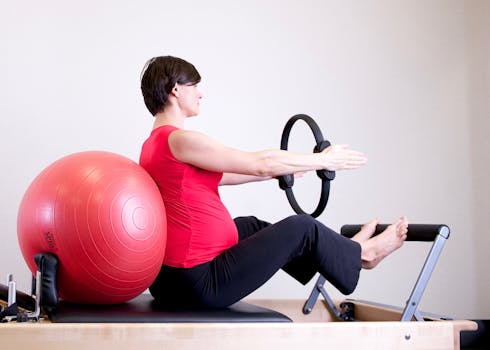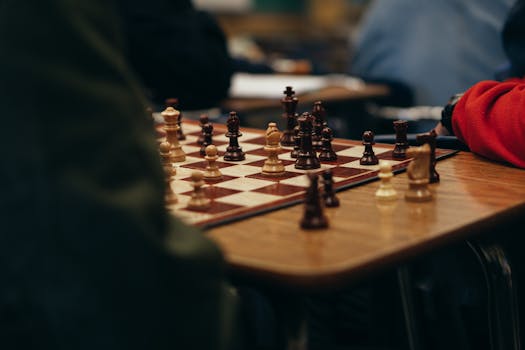Embracing a Balanced Lifestyle: Your Guide to Wellness and Happiness
Takeaways: In this article, we explore the essential components of a balanced lifestyle, including nutrition, fitness, mindfulness, and self-care. By incorporating these elements into your daily routine, you can enhance your overall well-being and happiness.
Understanding the Concept of a Balanced Lifestyle
What Does a Balanced Lifestyle Mean?

The Importance of Balance in Life
Living a balanced lifestyle is crucial for preventing burnout, reducing stress, and improving overall health. When we focus too much on one area of our lives, such as work or social obligations, other areas may suffer. Balance allows us to prioritize self-care, relationships, and personal growth, leading to a more satisfying and rewarding life.
Key Components of a Balanced Lifestyle
The key components of a balanced lifestyle include nutrition, physical activity, mental health, and social connections. Focusing on these areas ensures that you nurture your body and mind, leading to a happier and healthier you.
Nourishing Your Body: Nutrition for a Balanced Life
The Role of Nutrition in Your Well-Being

Building a Healthy Eating Plan
Creating a healthy eating plan involves incorporating a variety of foods from all food groups. Focus on whole foods, such as fruits, vegetables, whole grains, lean proteins, and healthy fats. Avoid processed foods and added sugars as much as possible. Meal prepping and planning can help you stay on track with your nutrition goals.
Mindful Eating: A Path to Better Health
Mindful eating is the practice of being present and fully engaging with the act of eating. This means paying attention to your hunger cues, savoring each bite, and enjoying the flavors and textures of your food. Mindful eating can help you develop a healthier relationship with food and prevent overeating.
Staying Active: The Importance of Physical Fitness
Benefits of Regular Exercise

Finding the Right Exercise Routine for You
Finding an exercise routine that you enjoy is essential for sustainability. Whether it’s yoga, running, dancing, or weightlifting, the key is to choose activities that you look forward to. Aim for a mix of cardiovascular, strength, and flexibility training for a well-rounded approach to fitness.
Incorporating Movement into Your Daily Life
You don’t need to spend hours at the gym to stay active. Look for opportunities to incorporate movement into your daily routine. This can include walking or biking to work, taking the stairs instead of the elevator, or engaging in active hobbies like gardening or playing sports.
Cultivating Mental Health: Mindfulness and Self-Care
The Significance of Mental Health

Practicing Mindfulness
Mindfulness involves being present in the moment and accepting it without judgment. Practicing mindfulness through meditation, deep breathing exercises, or yoga can help reduce stress and anxiety while promoting emotional well-being. Incorporating mindfulness into your daily routine can lead to a greater sense of peace and clarity.
Self-Care Strategies for a Balanced Life
Self-care is an essential aspect of maintaining a balanced lifestyle. It involves taking time for yourself to recharge and focus on your needs. This can include activities such as reading, spending time in nature, taking baths, or enjoying hobbies. Prioritizing self-care helps to prevent burnout and fosters resilience.
The Power of Social Connections
Building Meaningful Relationships

Community Engagement and Its Benefits
Engaging with your community can enrich your life and create a sense of belonging. Consider volunteering, joining clubs, or participating in local events. Community involvement not only helps others but also promotes personal growth and fulfillment.
Balancing Social Life with Personal Time
While social connections are important, it is equally crucial to balance your social life with personal time. Ensure you carve out moments for solitude and reflection, allowing you to recharge and reconnect with yourself. This balance will help you maintain a healthy relationship with others while honoring your own needs.
Setting Goals for a Fulfilling Life
The Importance of Goal Setting

Strategies for Effective Goal Setting
Effective goal setting involves making your goals SMART: Specific, Measurable, Achievable, Relevant, and Time-bound. Break down larger goals into smaller, manageable steps to avoid feeling overwhelmed. Regularly reviewing and adjusting your goals ensures they remain aligned with your values and priorities.
Celebrating Achievements and Progress
Recognizing and celebrating your achievements, no matter how small, is vital for maintaining motivation. Acknowledging your progress reinforces positive behavior and encourages you to continue striving for your goals. Consider keeping a journal to document your journey and reflect on your accomplishments.
Conclusion

FAQs
What are the first steps to creating a balanced lifestyle?

How can I stay motivated to maintain a balanced lifestyle?
Staying motivated involves setting clear goals, tracking your progress, and celebrating achievements. Surround yourself with supportive individuals who encourage your journey toward balance.
Is it possible to achieve balance in a busy life?
Yes, it is possible to achieve balance, even in a busy life. Prioritize your time, set boundaries, and make conscious choices about how you spend your time and energy. Small, consistent changes can lead to significant improvements over time.
What role does self-care play in a balanced lifestyle?
Self-care is essential for maintaining physical and mental health. It helps prevent burnout, enhances resilience, and fosters a positive relationship with yourself. Prioritizing self-care allows you to recharge and be more present in your daily life.
How can I incorporate mindfulness into my daily routine?
You can incorporate mindfulness through practices such as meditation, deep breathing, or simply paying attention to your surroundings. Start with just a few minutes each day and gradually increase your practice as you become more comfortable.
Sources:
- Healthline: Healthy Eating Tips
- Verywell Fit: Benefits of Regular Exercise
- Psychology Today: The Power of Self-Care







1 thought on “Embracing a Balanced Lifestyle: Your Guide to Wellness and Happiness”
Comments are closed.